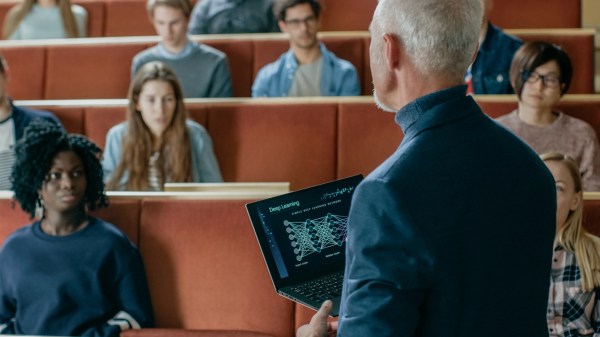Initiative combatting privacy abuse and tech overuse urges students to take control

Dignity — it’s not a word often associated with social media and online interaction. A new education program from Seton Hall’s Institute for Privacy Protection, however, aims to teach young people — specifically, middle-schoolers — that community and dignity are possible online.
Overall, the goal is to educate students and their parents about online privacy and about technology overuse. And the method avoids shaming anyone, said Gaia Bernstein, law professor and director of the institute, and Najarian Peters, assistant professor of the institute, which is housed in Seton Hall University’s School of Law.
During a recent webinar, ” Educating Students and Parents About Privacy and Technology Overuse ,” the professors explained that it’s counterproductive to become another authority figure telling students what not to do. Instead, by encouraging students to share their stories and explain how technology impacts their lives, the program intends to give students the agency to take control of their technology use.
The program, which is taught by Seton Hall law students, targets students in middle school because it’s typically the age when they get their first mobile phone, and they are still developing the cognitive ability to understand the ramifications of their actions. It’s also a time when parents feel like they are losing control of their kids.
Thus, the program has both a student curriculum and parent talk. Parents need to learn what privacy really means in the digital world. Moreover, as many kids model their tech habits on their parents’, the parents need to understand the impact of their tech use on their children. Finally, the program focuses on collaboration and helping students and parents discuss good technology habits together.
Within the student curriculum, there are four hour-long modules:
For each module, the lessons focus on teaching students how the technology works and getting them to talk about how technology affects them. With Ads and Content Choice, for instance, the students learn how their search terms are tracked and how that influences what ads appear on websites. Then, the program leaders ask the students what they think and what actions they could take.
Through these discussions, the law students and program directors have found that students already have a lot of feelings and opinions about the intersection between technology and privacy. For example, many streaming channels autoplay TV episode after TV episode, and the kids report feeling unsettled, like they can’t get away. The Seton Hall program teaches students to set resolutions and concrete boundaries for technology.
As the parent talks are shorter, they don’t include every module. Here, the conversation centers around students’ digital footprints and a healthy technology balance. Again, the presenter doesn’t lecture the parents or tell them to keep their kids offline; the presenter will acknowledge the good in the digital world, like communication and access to information. Then, they talk about the negatives, such as the wrong image following a student from middle school to college and into the workforce. The parents learn how to manage their children’s tech use and, more importantly, how to talk to them about it. In addition to the parents working with their children, they are also encouraged to work together to tackle digital access uses.
Lastly, during her parent talks, Bernstein cautions parents about relying on the law to help. COPPA, for example, doesn’t extend to sites like Instagram or Pinterest, and companies’ data privacy policies typically are just stating what they can do with the data and aren’t offering any protections.
“One of the main things I do in my talk is shatter this myth that the law is Superman — that the law is going to protect us,” she said. “Unfortunately, in the case of privacy law even for kids, there is very little protection.”
Join the community
Digital Learning & Leadership is a free professional learning community where you can share, learn, and discuss ideas and best practices to enhance teaching with technology.
This broadcast was hosted by edWeb.net and Common Sense Education and sponsored by Symantec .
The recording of the edWebinar can be viewed by anyone here .




